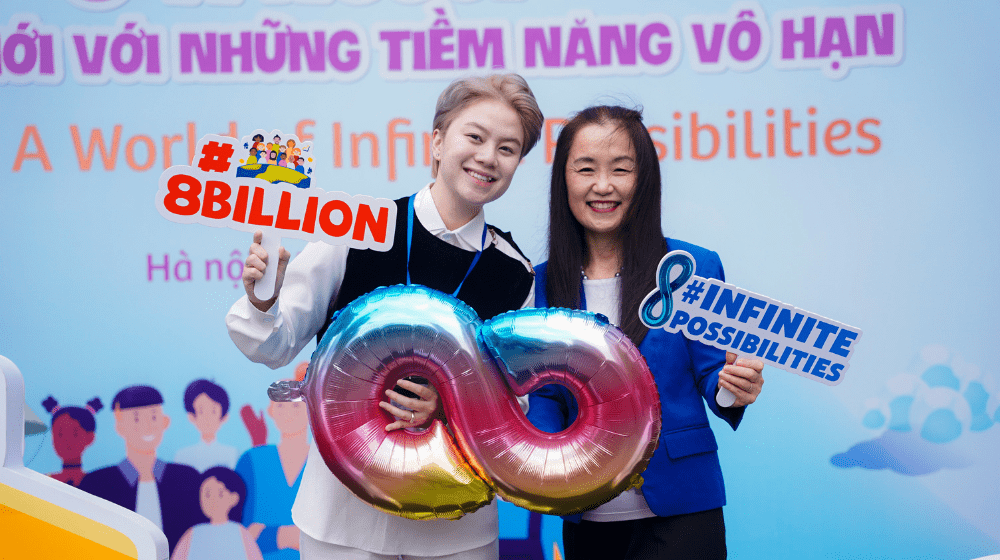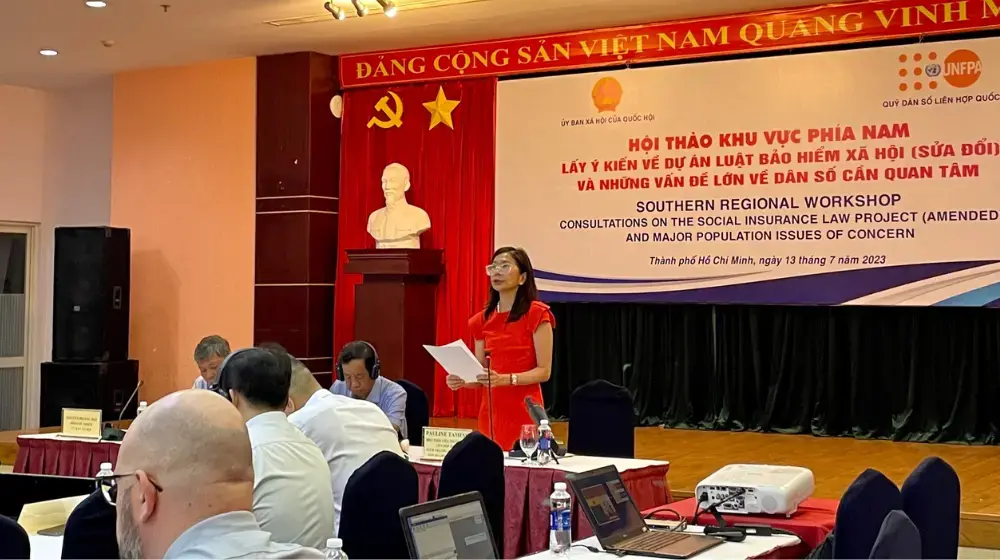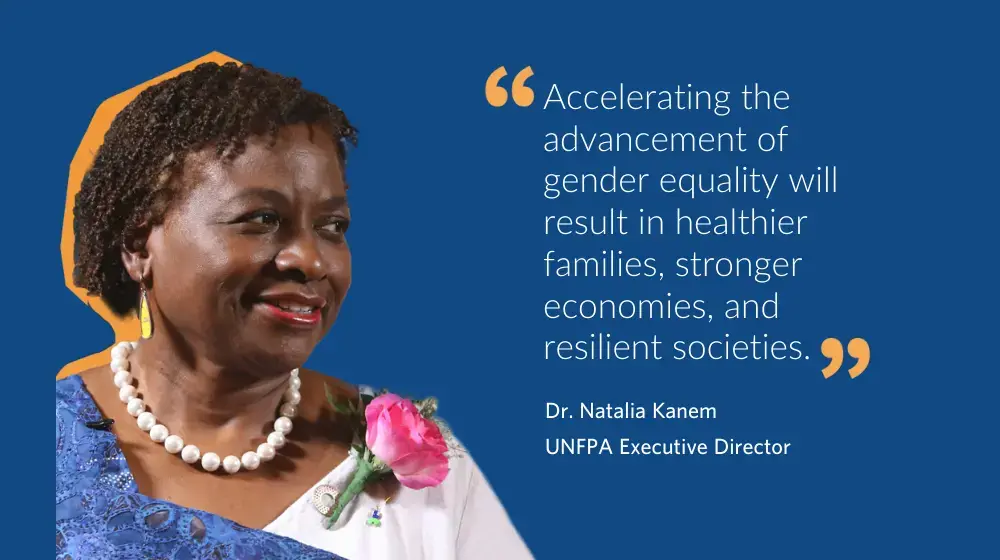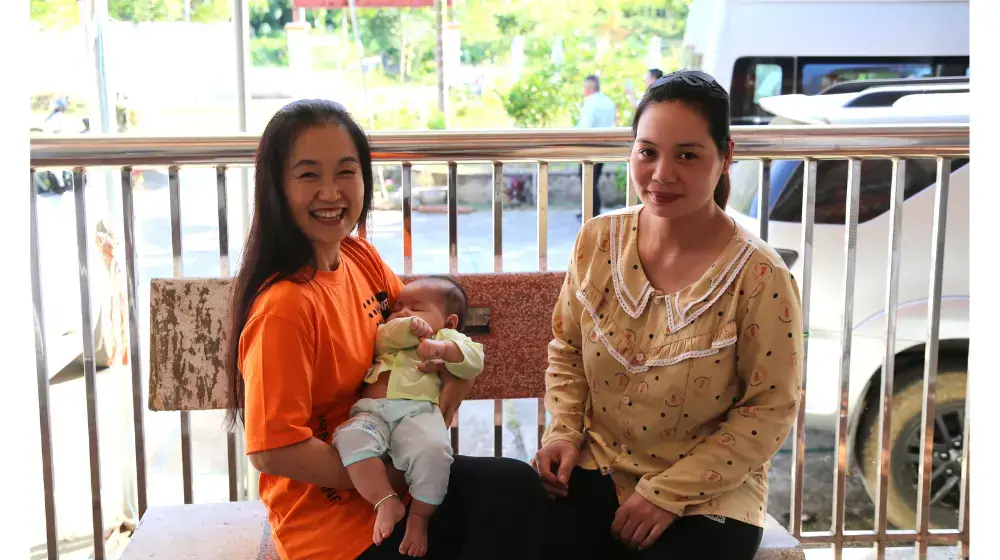- Mr. Nguyen Trung Tien, Deputy Director General of General Statistics Office;
- Ms. Le Hai Anh, Acting Head of the Science Department, VTV2;
- Representatives from the National Assembly, MPI, MOJ, MOH, MOHA, MOLISA, MOCST, MOET, and other line-Ministries;
- Representatives from embassies, international and local NGOs, UN colleagues and the media;
- Social media influencers;
- Participants of the Poster Drawing Contest;
Good morning,
I am very pleased to be here today, on 15 November, to welcome you all with Viet Nam Television to commemorate a very special day when the world population reaches 8 billion.
I would like to thank Viet Nam Television, VTV2 channel and everyone joining us here. It shows your interests and commitment to joining hands in making the world and Viet Nam a better place.
Only 12 years ago, we marked 7 billion world population, and the next billion is expected in 2037. When we look at the big number, we usually ask questions like “How did we become so many? How large a number can our Earth sustain?” These are important questions, but we should also ask ourselves “What can I do to make our world a better place?” or “How do we close the gaps between rich and poor, and rectify inequality between women and men, and boys and girls?” Today, we are 8 billion - a world with infinite possibilities. Together, we can translate possibilities into action to make life better for everyone in the future.
The challenges facing humanity are acute: generation-defining issues such as climate change, conflict and COVID-19 are disproportionately affecting the most marginalized and vulnerable among us. To date, millions continue to live in poverty and suffer from hunger and malnutrition, do not have access to healthcare and social protection, and are unable to complete quality education. Women around the world are still denied the fundamental right to make decisions over their bodies and futures, and we are seeing a worrying roll-back of progress on women’s rights in many countries in the world.
Despite these challenges, the story behind 8 billion and how we have gotten here is a story of triumph. We have reduced poverty and achieved remarkable advancements in social issues. There are more of us humans than ever before due, in part, to increasing life expectancy and declining infant and maternal mortality.
The UNFPA Executive Director made it clear that the notion of “too many people” will be a mistake. She emphasized that focusing only on population numbers and growth rates often leads to coercive and counterproductive measures, where women are pressured to have children or prevented from doing so. There may be more people in the world today, but equally important is the unprecedented demographic diversity we see in the global population today. Our Executed Director spoke to countries in the world that people are the solution, and not the problem. When people have the power to make informed choices about whether and when to have children, and how many children to have, as well as when they can exercise their rights and responsibilities, they can navigate the risks and the foundation of more inclusive, adaptable and sustainable societies.
Achieving this demographic resilience starts with a commitment to counting not just numbers of people but also opportunities for progress and barriers that stand in its way. This calls for transforming discriminatory norms that hold individuals and societies back. It leads us to economies that work for all people instead of just a few, and to a fair use of resources so that we can mitigate risks and meet the needs of current and future generations.
We are much more than a number, as is the human family. Numbers matter, but let’s count carefully. A resilient world of 8 billion, a world that upholds individual rights and choices, offers infinite possibilities – possibilities for people, societies and our shared planet to thrive and prosper.
Dear participants,
We are here today – we are one of the 8 billion. Each one of us has a unique role and shared responsibility to address issues that affect us all towards inclusive, equitable and sustainable development.
Together we are 8 billion people, 8 Billion Hopes, 8 Billion Dreams and 8 Billion Solutions.
UNFPA will continue to advocate for the fundamental right for individuals and couples to make their own decision, freely and responsibly, the number, timing and spacing of having children. UNFPA will support governments and societies in achieving a world where every pregnancy is wanted, every childbirth is safe, and every young person’s potential is fulfilled.
Thank you very much for your attention and participation. Happy 8 Billion Day!
Thank you for your attention.





